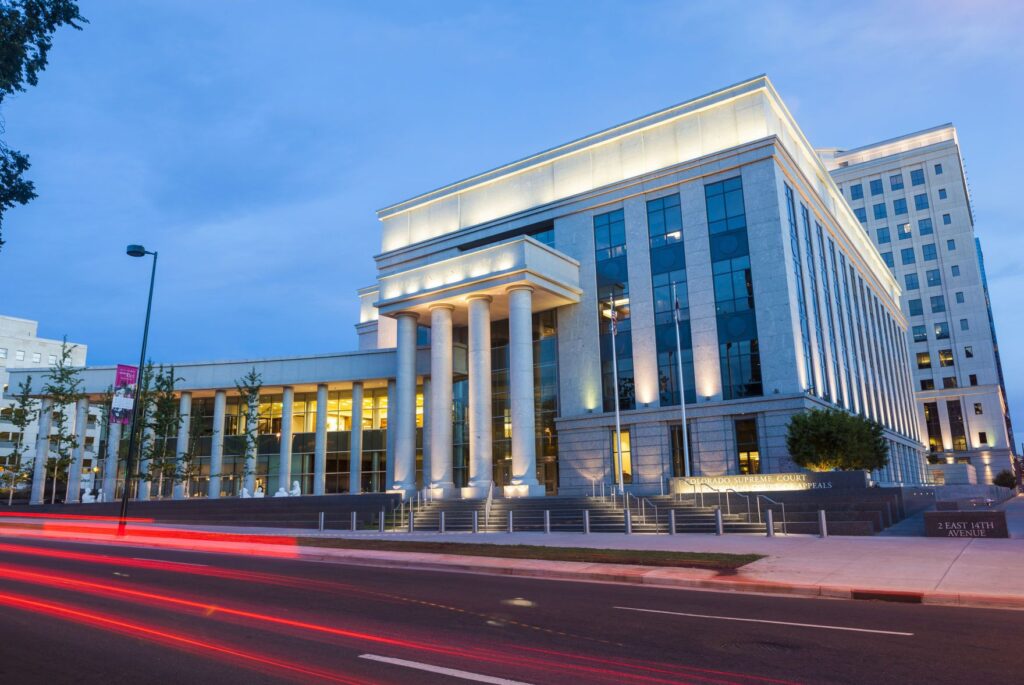Government’s 23-month delay not a reason to dismiss criminal case, 10th Circuit rules

Even though the government waited 23 months after indicting a defendant to resume its prosecution, a trial judge was wrong to conclude the delay violated the man’s constitutional right to a speedy trial, the federal appeals court based in Denver ruled last week.
U.S. District Court Senior Judge Christine M. Arguello derided the indictment of Joshua Omar Garcia as “a shoplifting incident that the Government decided to make into a federal case,” and dismissed the charges in 2020 after finding a Sixth Amendment violation. Weighing several factors, she believed federal prosecutors had harmed Garcia’s defense by waiting nearly two years for a related criminal case at the state level to proceed.
But the U.S. Court of Appeals for the 10th Circuit disagreed with Arguello on nearly all fronts. The U.S. Supreme Court has laid out a rubric for deciding whether a delay is unconstitutional, and a three-judge panel of the 10th Circuit was most persuaded by Garcia’s failure to promptly allege a Sixth Amendment violation when he first arrived in federal court.
“Here, the balance of factors favors the government and – more importantly – we echo the Supreme Court’s reluctance to find a constitutional speedy-trial-right violation when the defendant failed to adequately assert that right,” wrote Judge Joel M. Carson III in the panel’s Feb. 8 opinion.
Garcia’s alleged crimes began with shoplifting, but escalated to more serious charges of firearms violations and attempted murder, spanning the state and federal justice systems.
On June 3, 2017, Garcia allegedly walked out of an Aurora Kmart without paying for merchandise. Employees confronted him and Garcia pointed a gun at them before firing at the ground. Two days later, Garcia reportedly shot at officers who were trying to apprehend him.
Adams County prosecutors charged Garcia with attempted murder and illegal weapons possession, among other offenses. Nearly two years later, he pleaded guilty to assault on a peace officer, receiving 23 years in prison.
Meanwhile, a federal grand jury had also indicted Garcia in September 2017 with three federal charges related to the shootings. The government, however, sealed the filing and allowed the state proceedings to play out. Only at the time of Garcia’s sentencing 23 months later, in August 2019, did federal prosecutors move to unseal the indictment and restart their own case against Garcia.
Garcia’s state defense attorney only learned about the existence of the federal case in May 2019, and the U.S. Attorney’s Office declined to provide details. Once the case began, Garcia’s federal defender asked for extensions of the speedy trial deadline to, among other things, research whether there had been a violation of Garcia’s Sixth Amendment speedy trial guarantee.
Eight months after Garcia’s first appearance in federal court, his lawyers moved to dismiss the charges for a speedy trial violation.
The Supreme Court has recognized three purposes of the right to a speedy trial: Discouraging lengthy pretrial incarceration, minimizing anxiety about unresolved criminal charges and preventing actual harm to an accused person’s defense. However, the Sixth Amendment includes no explicit timeline.
In Colorado, the legislature has interpreted the speedy trial guarantee to require criminal defendants to be brought to trial within six months of a not guilty plea. Otherwise, the consequence is dismissal of the charges and a prohibition on further prosecution. Similarly, Congress enacted the Speedy Trial Act of 1974 to provide a 70-day speedy trial deadline, with the ability for judges to exclude certain periods from the speedy trial calculation.
For alleged violations of the less-specific Sixth Amendment, the Supreme Court’s 1972 decision of Barker v. Wingo outlines four factors judges are to consider when weighing a violation: the length of delay, the reason for the delay, when the defendant raised his Sixth Amendment rights and whether the delay prejudiced the defense.
Arguello noted the 10th Circuit has not yet decided whether Garcia’s Sixth Amendment rights were triggered when the government first filed its sealed indictment, but she determined the answer was yes – placing the full 23-month delay under scrutiny. She agreed the length was prejudicial to Garcia and saw no reason why the state and federal prosecutions could not proceed simultaneously, with “minimal” overlap between the cases.
It was “hard to imagine” a less complicated case, Arguello wrote in June 2020, pointing out Garcia’s only conviction from the incident was assault. She found Garcia had raised his speedy trial rights in time, and believed the government’s delay had caused the loss of Kmart surveillance video that would have shown the alleged store shooting – a loss she considered prejudicial to the defense.
The government asked the judge to reconsider her ruling, explaining that Kmart itself had overwritten the surveillance video 36 days after the incident, and before the federal indictment even existed. But Arguello insisted the government’s actions allowed the evidence to go missing.
“This case involves a shoplifting incident that the Government decided to make into a federal case, but then let the grand jury indictment against Mr. Garcia remain sealed for two years,” she wrote in dismissing the criminal case against Garcia.
On appeal, prosecutors argued Arguello had misinterpreted most of the “Barker factors.” An attempted murder case in state court is, in fact, complex, and the gun was a common piece of evidence that would have needed to move back and forth between the state and federal systems, contended Assistant U.S. Attorney J. Bishop Grewell.
Among other reasons for the delay, he argued the federal government could not have known Garcia would eventually plead guilty only to assault, and it was conceivable that Garcia would offer inconsistent testimony in state court that federal prosecutors could later use in their case.
“We don’t always say that waiting for the state to prosecute is a justifiable excuse for purposes of the speedy trial requirement, do we?” asked Judge Carolyn B. McHugh during oral arguments before the 10th Circuit in November 2021.
Ultimately, the appellate panel, after its own 14-month delay, decided that the federal government’s deference to Adams County prosecutors was justifiable.
“The district court erred in finding minimal overlap between the federal and state cases against Defendant,” wrote Carson. “The district court also gave insufficient weight to the difficulties that prosecuting Defendant’s federal and state cases simultaneously would place on the state and federal governments.”
Although Arguello believed the government’s delay harmed the defense because it enabled the loss of Kmart’s surveillance video, the 10th Circuit found no indication such evidence would ever have materialized given the store’s deletion after 36 days.
Finally, the panel faulted Garcia for waiting eight months to assert his speedy trial right, even though his defense attorney was using the time, in part, to research a potential Sixth Amendment violation.
Garcia “cannot avail himself of that protection when he did not diligently assert that right,” Carson wrote.
The panel reversed Arguello’s order dismissing the criminal case. In doing so, the appellate judges did not answer a question Arguello identified as unresolved: whether a defendant’s right to a speedy trial begins at the time of a sealed indictment.
The case is United States v. Garcia.














